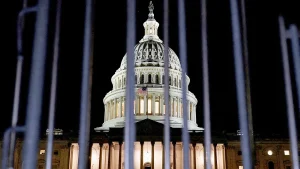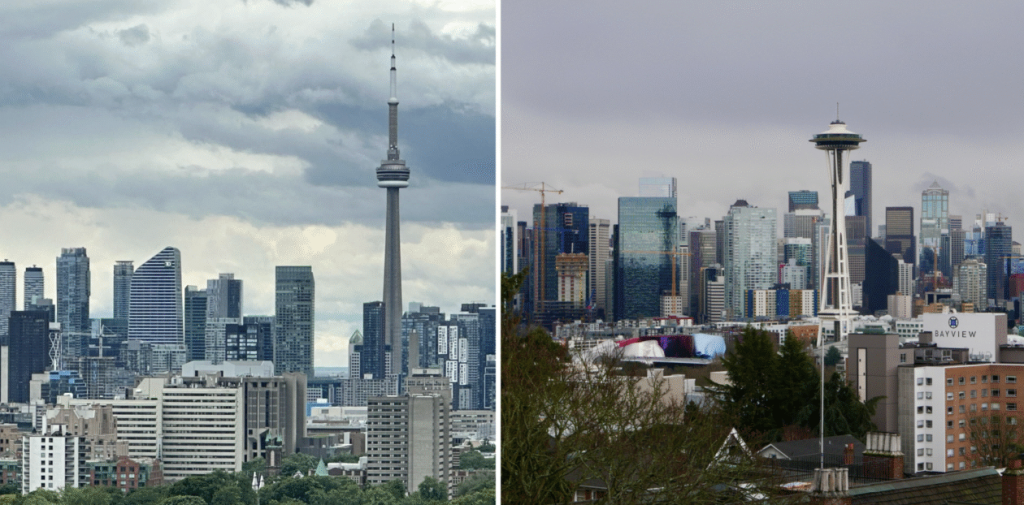Seattle vs. Toronto: A Tech Powerhouse Showdown
As the Toronto Blue Jays and Seattle Mariners face off in the American League Championship Series, a different competition unfolds behind the scenes: the battle for tech supremacy between these two innovative coastal cities. Both metropolitan areas have emerged as significant technology hubs in North America, each with unique strengths and development trajectories that have positioned them among the continent’s most vibrant tech ecosystems. While baseball fans focus on home runs and pitching stats, the tech industry sees these cities competing for talent, investment, and innovation leadership in an increasingly digital economy.
According to CBRE’s recent analysis of North American tech markets, Seattle holds the impressive second position for tech talent concentration, with Toronto following closely in third place. This narrow ranking difference reflects the remarkable development both cities have achieved in attracting and retaining skilled technology workers. Seattle maintains a slight edge in artificial intelligence talent specifically, though Toronto has been making significant investments to close this gap. The foundations of these tech communities differ substantially: Seattle built its reputation on established corporate giants that have shaped the global technology landscape for decades, while Toronto has developed a more recent but rapidly accelerating ecosystem focused on cutting-edge research and entrepreneurial energy. These different development models have created distinct innovation cultures that influence everything from funding patterns to company formation.
Seattle’s tech dominance stems largely from its corporate titans – Microsoft and Amazon – two companies that have fundamentally transformed how the world interacts with technology. These anchors, along with major regional headquarters for Expedia, Zillow, and T-Mobile, have created an exceptionally deep corporate tech landscape that Toronto hasn’t yet matched. This corporate density becomes even more apparent when examining satellite engineering offices: the Seattle region hosts more than 100 engineering outposts from companies like Google, Meta, and Apple, creating a rich employment ecosystem for technology professionals. Toronto’s corporate presence, while growing with companies like Rogers Communications and Thomson Reuters, hasn’t achieved Seattle’s concentration of tech giants, though many U.S. companies have established Toronto offices in recent years as they recognize the city’s emerging talent pool. This corporate foundation gives Seattle a clear advantage in established tech infrastructure, though Toronto’s growth trajectory suggests the gap may narrow in coming years.
The startup ecosystem comparison reveals interesting contrasts between the two cities’ innovation approaches. Toronto boasts Cohere, a standout enterprise AI model company recently valued at $7 billion, which exemplifies the city’s strength in advanced artificial intelligence research and commercialization. Additional Toronto success stories include 1Password (valued at $6.8 billion), VPN provider Tailscale (which raised $160 million this year), and autonomous trucking innovator Waabi (with $200 million in recent funding). Seattle’s startup community, while technically sophisticated, lacks a breakout AI company of Cohere’s magnitude, though it maintains a slightly higher overall unicorn count at 14 companies compared to Toronto’s 11. Startup Genome’s global ecosystem ranking places Seattle at 15th globally with Toronto following at 20th, suggesting Seattle maintains a modest advantage in overall startup activity despite Toronto’s AI leadership. This dynamic highlights how the two cities have developed different specialization paths, with Toronto increasingly focused on artificial intelligence and Seattle maintaining broader technology representation.
Both cities benefit from world-class research institutions that drive innovation and talent development. The University of Washington and University of Toronto consistently rank among North America’s top academic institutions, with different ranking systems placing each slightly ahead of the other. Toronto’s additional strengths include the University of Waterloo and the Toronto AI Institute, while Seattle’s University of Washington houses one of America’s premier computer science programs. Beyond academia, Toronto’s research ecosystem features the Vector Institute for Artificial Intelligence and the Canadian Institute for Advanced Research, while Seattle counters with the Allen Institute for Artificial Intelligence and the Fred Hutchinson Cancer Center. This research infrastructure parity extends to the cities’ technology luminaries – Seattle features established figures like Bill Gates, Rich Barton, and Satya Nadella, while Toronto showcases AI pioneers including Nobel laureate Geoffrey Hinton (often called the “godfather of deep learning”), Waabi founder Raquel Urtasun, and Cohere CEO Aidan Gomez. This leadership comparison reflects the different evolutionary paths of each tech ecosystem, with Seattle’s icons emerging from the software revolution and Toronto’s from the artificial intelligence transformation.
The competition between these innovation hubs extends beyond pure technology metrics into cultural and infrastructure elements that shape their communities. Both cities feature remarkably similar baseball stadiums with retractable roofs (Toronto’s Rogers Centre pioneered this engineering achievement) and advanced display technologies. Both face similar challenges balancing rapid tech-driven growth with housing affordability, transportation infrastructure, and maintaining their unique cultural identities. Seattle currently maintains a slight edge in overall tech ecosystem development, leading Toronto in two key categories (corporate presence and startup activity) while tying in research strength and falling behind in AI leadership. However, this technology competition resembles a marathon rather than a sprint, with both cities demonstrating tremendous momentum that will likely reshape North America’s innovation landscape for decades to come. Regardless of which baseball team advances to the World Series, both Seattle and Toronto have secured positions as premier technology destinations with complementary strengths that enhance North America’s global competitiveness in the digital economy.















